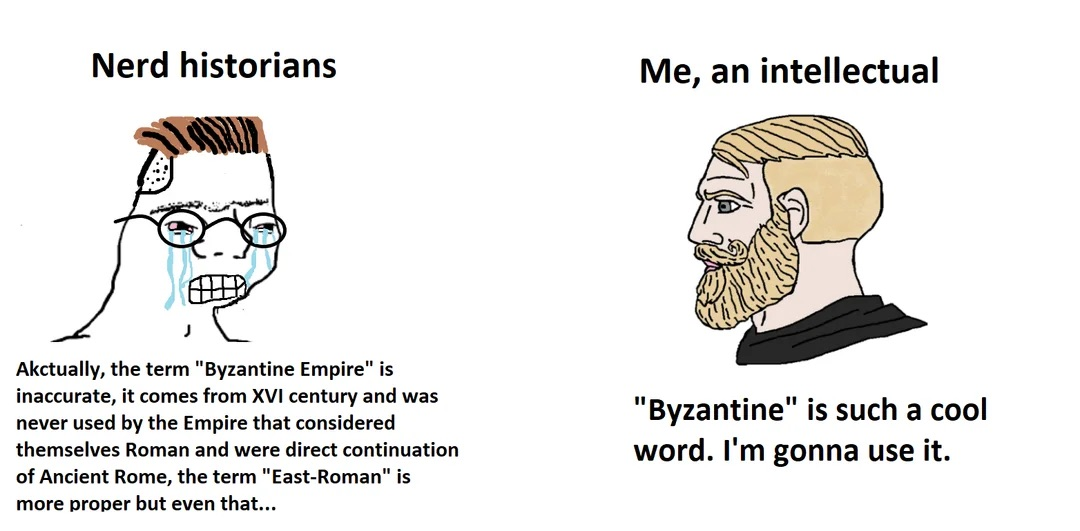No nation incapable to speak latin should ever be called "Romans". Beside A Roman Empire must have Rome as its capital. And Byzance lost Rome almost a millennia before the game started. So it can only be called Byzance although Greek Empire would be better period.
What is next ? Calling "Russia" as "Sarmatia & Scythia" because that is how Romans called it in 1st century AD ? Or Rename "Austria" as "Noricum & Pannomia" ? Tunisia as "Africa" ? And why not rename the low-land states as Belgium while you are at it ?
Edit :
LMAO this is so accurate. I am going to save it and re-use it everytime I encounter dumb ignorant Phihellenists zealots. Or really, just children who spent too much time playing Byzance in video games.
Re-edit : lol they are triggerered so easely. And cant even detect obvious trolling.
It never cease to amaze me how passionate they are about something while simustaniously displaying their crass ignorance. How people can be so assertive about this matter when they are woefully ignorant about Ancient and Medieval history ? Like I am sure they cant even name or explain Augustus titulature. Nor can they explain the difference between "Prince", "King" and "Emperor" but they are 100% convinced to be right with their attempt at broken pseudo latinized Greek name.
What is next ? Calling "Russia" as "Sarmatia & Scythia" because that is how Romans called it in 1st century AD ? Or Rename "Austria" as "Noricum & Pannomia" ? Tunisia as "Africa" ? And why not rename the low-land states as Belgium while you are at it ?
Edit :

don't mind me, just passing through . . .
LMAO this is so accurate. I am going to save it and re-use it everytime I encounter dumb ignorant Phihellenists zealots. Or really, just children who spent too much time playing Byzance in video games.
Re-edit : lol they are triggerered so easely. And cant even detect obvious trolling.
It never cease to amaze me how passionate they are about something while simustaniously displaying their crass ignorance. How people can be so assertive about this matter when they are woefully ignorant about Ancient and Medieval history ? Like I am sure they cant even name or explain Augustus titulature. Nor can they explain the difference between "Prince", "King" and "Emperor" but they are 100% convinced to be right with their attempt at broken pseudo latinized Greek name.
Last edited:
- 7
- 5

